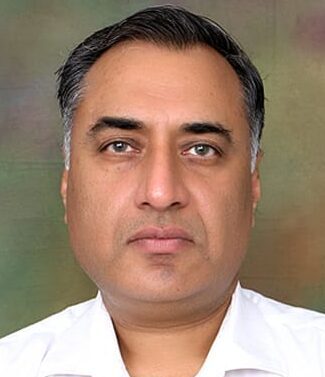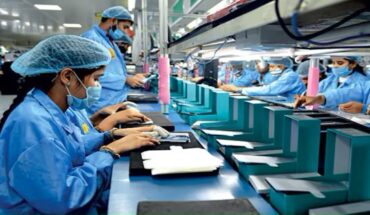

Indian Pharmaceutical Industry (IPI) has made a name for itself and is now ranked 3rd globally in terms of volume. Presently, Indian Pharmaceutical Industry is producing more than 60,000 generic drugs across 60 therapeutic categories. The strength of the industry is reflected in terms of exports too as in 2023-24, India’s drugs and pharmaceutical exports have touched US$ 27.9 billion with 9.67 per cent year-on-year growth. Now, the time has come that with existing strengths, it is able to create and enhance strength in biopharmaceuticals, represented by Pharma 2.0. On April 25, 2024, Dilip Shanghvi (Sun Pharma) and Hari Bhartia (Jubilant group), prominent pharma industry leaders from India while addressing at 18th Annual BioPharma & Healthcare Summit meeting of the USA-India Chamber of Commerce (USAIC) in Boston echoed this – “In small molecules (chemistry-based drugs), we have capacities but in large molecules (biotech drugs), we are still building”.
The use of herbs or plants for treating diseases dates back to ancient times. Earlier medications included natural sources like plants, herbs, animals, or minerals. Later on, the use of active chemicals extracted from plants became prevalent, e.g., morphine extracted from opium in 1804 by Friedrich Wilhelm Serturner became the first pharmaceutical medicine. After that, synthetic drugs came into existence, e.g., the first synthetic drug – Chloral Hydrate came up in 1869. In contrast to this, a biopharmaceutical (biological medicine or biologic) is a therapeutic product that is extracted or semi-synthesized from biological sources such as humans, animals, or microorganisms and are made from carbohydrates, nucleic acids, living cells, proteins, or tissues produced by biotechnology methods and other cutting-edge technologies. The first Biologic/Biopharmaceutical ‘Humanized Insulin’ was introduced in 1982 that formed the beginning of Biopharmaceuticals/Biologics. By 2016, out of the top 10 global best-selling drugs were biologics. Besides biologics, there are biosimilar products as recognized by regulatory bodies, e.g., by the U.S. Food and Drug Administration which considers it as a biologic product that is highly similar to and has no clinically meaningful differences from an existing FDA-approved reference product (biologic). When the patent on the original product expires, biosimilars, which are officially approved variations of the original ‘innovator’ product, can be produced. The first Biosimilar approved in India dates back to the year 2000 for Hepatitis B. Another related term is – Biobetters which is a distinct category of biopharmaceuticals that undergo structural or functional modifications to enhance their clinical performance compared to approved reference products.
The global biopharmaceutical market that accounted for nearly one-third of the pharmaceutical market was valued at US$ 443 billion in FY 2022, and was growing at a CAGR of 12% over a 5-year period. India has been predicted to be one of the world’s ‘fastest-growing bio-hubs’ owing to its growing biosimilar industry. As per the Central Drugs Standard Control Organisation (CDSCO), there were over 98 approved biosimilars till September 2019. Biopharmaceutical market in India is forecasted to reach US $12 billion by 2025. There is a huge potential for the biosimilars as 70 biological drugs are losing exclusivity in the USA and 5 key European geographies over 2022-25.
Indian pharmaceutical companies have initiated moves to create and sustain strength in biopharmaceuticals. Sun Pharmaceutical Industries Limited, which holds numero uno position in Indian pharmaceutical industry, started its journey towards biopharmaceuticals when it formed a joint venture with MSD in 2011 to develop, manufacture and commercialize new combinations and formulations of innovative, branded generics in the emerging markets. In 2014, the company obtained the licence of Ilumya, a biologic drug, from a subsidiary of Merck & Co. In 2016, the company announced new exclusive collaboration with the International Centre for Genetic Engineering and Biotechnology (ICGEB) to develop novel dengue vaccine thereby marking its potential entry into vaccine segment. In 2016 itself, Sun Pharma entered into a licensing agreement with Almirall on the development and commercialization of Ilumya in Europe, and in 2017, it entered into a strategic long-term manufacturing agreement for Ilumya with Samsung Biologics in Korea. In 2018, the company announced the U.S. FDA approval and Therapeutic Goods Administration (TGA), Australia of Ilumya for psoriasis. The company reported strong sales of US $315 million from the product globally in 2022. Sun Pharma tapped the biologics segment in different countries through licensing with different companies.
Dr. Reddy’s Laboratories (DRL) entered into a technical collaboration agreement with Viral Therapeutics Inc. of USA in 1997, to initiate the Bio-technology division to produce diagnostic and therapeutic recombinant proteins. In 1998, it created a Molecular Biology Group to develop four new biotech products. The Biotechnology division was established by the company with a goal of providing Indian consumers with generic versions of imported therapeutic recombinant proteins at affordable prices. Reddy US Therapeutics Inc. commenced its operations in the year 2000 for discovering novel therapeutics. In 2001, the company launched its first biologic product – Grastim. In the same year, a subsidiary, Zenous Biotech Private Limited was formed that is involved in building a technology platform for monoclonal antibodies. In 2007, the company made a mark in biosimilars by launching the world’s first biosimilar ‘Rituximab’ in India under the brand name – Reditux. In subsequent years, the company entered into different partnerships or collaborations for different biosimilars with companies such as Merck Serono, TR Pharm, and Amgen in 2012, 2016 and 2016 respectively. In 2020, DRL has got into an agreement with the Russian Direct Investment Fund (RDIF) to collaborate on clinical trials, and distribution of Sputnik V vaccine in India. As of 2023, the company had 12 Biologics in its pipeline.
Torrent Pharmaceuticals has earned an epithet – The Company with the Most First Launches. Torrent tapped biopharmaceutical sector indirectly in 1992 when it had an agreement to manufacture Insulin for the Denmark-based Novo Nordisk. In 2014, the company made entry into biosimilars with launch of ‘Darbatitor’, the biosimilar for Darbepoetin alpha. In 2014 itself, it entered into an exclusive agreement with Reliance Life Sciences (RLS) for marketing biosimilars in India where RLS was to develop and supply these products and Torrent Pharma had to market these biosimilars in India.
Cipla had its first collaborative biopharmaceuticals development program in 2003 with Avesthagen regarding the biologics. Joint Venture – ‘Avesta Biotherapeutics and Research Limited’ was formed in 2007 between Cipla’s fully-owned subsidiary Meditab Specialties and Avesthagen. In 2009, Cipla entered into a strategic alliance with an advanced clinical stage biotech company – Stempeutics Research. Cipla’s first biosimilar ‘Etacept’ was launched in 2013 through partnership with a Chinese company – Shanghai CP Guojian Pharmaceutical. In 2014, it launched its second biosimilar in collaboration with Hetero. In 2014 itself, the company bought remaining 75 per cent of Mabpharm Pvt. Ltd thereby making it a fully-owned subsidiary, and it was named – Cipla BioTec, with focus on research, development, manufacturing and marketing of biosimilars. In 2016, a limited approval for Stempeucel was given by the Drugs Controller General of India (DCGI) making it the 5th off-the-shelf stem cell product to be approved in the world and the first such approval in India. In 2014, company’s entry into vaccine segment came up in the form of an agreement with Serum Institute of India (SII) where Cipla was responsible for seeking European Medicines Agency approval for the paediatric vaccines produced by the SII and market the products in Europe.
Alkem Laboratories initiated its journey towards biopharmaceuticals in 2011 with acquisition of Enzene Biosciences Limited that had focus on producing biosimilars, novel biologics, synthetic peptides and phytopharmaceuticals. The first biosimilar, ‘Teriparatide’ from Alkem got market approval in 2021 in India. Alkem also entered into an agreement with Theramex to commercialize biosimilar in Europe, UK, Australia, and Switzerland. Aurobindo Pharma another leading company that is in existence since 1986 started its journey towards the vaccines segment with a JV with Tergene Biotech in 2015. In 2015 itself, Tergene Biotech became subsidiary of Aurobindo Pharma. In 2016, the company added two new segments namely Biosimilars and Vaccines. In 2017, it acquired 4 biosimilars from the Swiss TL Biopharma. In 2020, biosimilar business was transferred to ‘CuraTeQ Biologics’, a subsidiary of Aurobindo. By FY22, it had 14 biosimilars in its portfolio. Vaccine business is with a subsidiary company – Auro Vaccines.
Zydus Lifesciences (formerly Cadila Healthcare), 4th largest pharma company in India, entered in biopharmaceutical space through joint venture with Korean Green Cross Corporation in 1998. To launch a range of vaccines in India, it entered into a technical-cum-marketing tie-up with ‘Berne Institute’, the Swiss Serum and Vaccine Institute. At present, Zydus has a dedicated Vaccine Technology Centre with two R&D centers, located in Italy and Ahmedabad. In 2021, the company received Emergency Use Authorization (EMA) for its World’s First Covid-19 DNA vaccine ‘ZyCoV-D’. By FY22, the company had 30 biologics in portfolio including 8 Novel biologics and 22 biosimilars.
Lupin Limited entered into the field of biopharmaceuticals in 2008 on establishing a biotech facility at Pune, and a Biotechnology Research Group was established to develop and commercialize biosimilars and novel biologics. Presently, Lupin has a total of three centres in Pune namely Lupin Research Park (LRP), Lupin Biotech, and Lupin Bioresearch Centre.
Biocon has transformed itself from an enzyme manufacturing company to a leading biopharmaceutical company. In 2006, it inaugurated India’s largest integrated biotechnology hub ‘Biocon Park’. Biocon Biologics, a subsidiary of Biocon is dedicated to biosimilars, and has three manufacturing facilities and two R&D sites. Other notable companies which have presence in biopharmaceutical space include Gland Pharma, IPCA Labs, Laurus Labs, and Glenmark. Glenmark that is in existence since 1977 established its first R&D Centre for NBE Research in Switzerland to focus on the development of novel biologics. In 2011, it out-licensed its 1st novel biologic product. Ichnos Scieces Inc., a spun off entity of Glenmark had 7 biologic molecules in pipeline by 2023.
To conclude, Sun Pharma and Glenmark launched their first biopharmaceuticals through in-licensing route. Cipla, Torrent, and Lupin did it through partnerships DRL, Biocon, Alkem, and Zydus launched biopharmaceuticals on their own. Biocon, Glenmark, Lupin, Alkem, Aurobindo, and Ipca Labs have set up their dedicated biologic R&D Centers. Companies such as DRL, Biocon, Cipla, Glenmark, Lupin, Alkem, Aurobindo, Zydus Life Sciences, Laurus Labs, and Gland Pharma have set up dedicated biopharmaceutical manufacturing facilities. DRL, Cipla, Biocon, Glenmark, Lupin, Alkem, Aurobindo Pharma, Zydus Life Sciences, and Laurus Labs have set up their subsidiaries to focus on biopharmaceuticals. Majority of these companies have invested in infrastructure, manpower, and drug development in biopharmaceuticals.
Dr. Anil Kumar Angrish,Associate Professor (Finance and Accounting),
Department of Pharmaceutical Management, NIPER, S.A.S. Nagar (Mohali), Punjab
Ramya Korada, MBA (Pharm.), Department of Pharmaceutical Management,
NIPER, SAS Nagar (Mohali), Punjab
Disclaimer: Views are personal and do not represent the views of the Institute.






